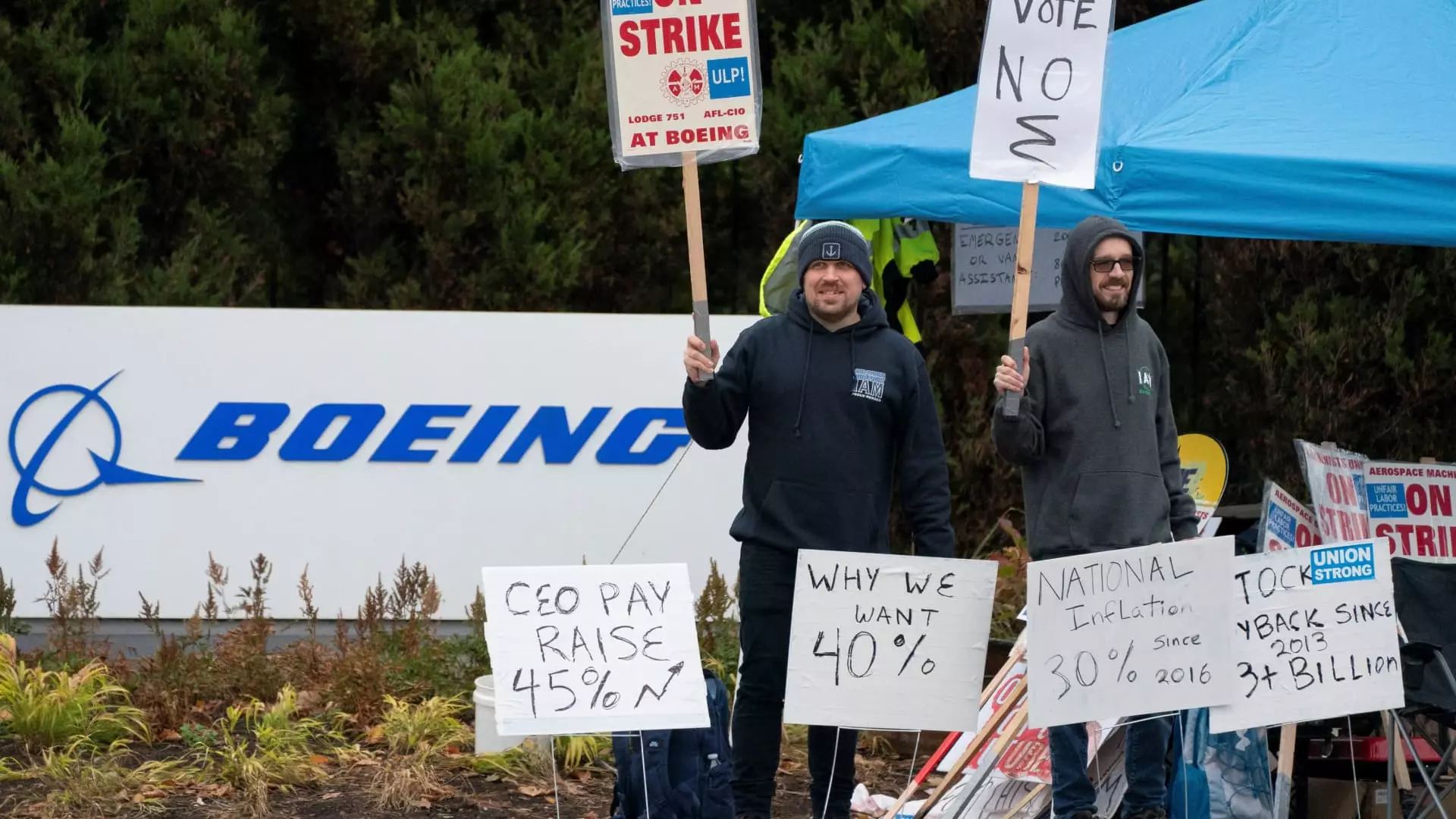The ongoing standoff between Boeing and the International Association of Machinists and Aerospace Workers (IAM) has reached a critical juncture. After nearly seven weeks of striking, the machinists’ union, representing over 32,000 workers in the Seattle area, is gearing up for a crucial vote on a newly negotiated contract. This new offer comes in response to a series of prior negotiations and hinges on significant wage increases designed to meet the demands of an impatient workforce.
The IAM has publicly urged its membership to approve the latest proposal, signaling exhaustion from the prolonged strike. The union’s leadership articulated a sense of urgency, suggesting that the current agreement might represent the peak of their bargaining power. “We are at that point now and risk a regressive or lesser offer in the future,” the union emphasized in a recent statement. The context here is critical, as extending the strike further may jeopardize the hard-earned concessions achieved thus far. The leaders recognize that continued action could inadvertently lead to diminished gains in negotiations rather than further improvements.
The updated contract offer is appealing, featuring a 38% increase in general wages over a four-year span—an increase from an earlier proposal of 35%. This, when compounded, translates to nearly a 44% increase in total pay. Moreover, workers are presented with an enticing choice: either accept a one-time ratification bonus of $12,000 or opt for a combination of a $7,000 bonus along with a $5,000 contribution to their 401(k) plans. This financial incentive highlights Boeing’s attempt to win back the trust of its workforce and signify a recognition of the rising cost of living in the Seattle area, where the presence of major tech companies has escalated competition for labor.
Boeing’s management has acknowledged the urgency of the negotiations, with CEO Kelly Ortberg stating that the firm has been actively pursuing a viable resolution. Despite Ortberg’s optimism, the challenges remain daunting. The company has faced criticism not only for its compensation strategies but also for quality control issues that have plagued its production lines. After incurring losses exceeding $6 billion in the last quarter, Boeing’s future remains precarious as the repercussions of an ongoing strike further complicate its recovery plans.
Adding to the complexity of this labor dispute are external economic factors. Workers are increasingly vocal about their need for adequate compensation in light of soaring living costs—especially pertinent in a region where tech giants are continuously vying for skilled labor. The labor action not only affects the workforce but is also symptomatic of larger issues within Boeing as they grapple with production flaws and safety concerns. For instance, recent incidents, such as a midair failure of a door plug in a Boeing 737 Max 9, have cast a shadow over the company’s safety reputation, making it imperative for them to not only address the demands of the striking workers but also restore public confidence.
As the vote approaches, the union’s call for ratification becomes increasingly significant, representing both a potential end to the strike and a recommitment to their labor rights. The outcome of this decision will not only shape the immediate trajectory of Boeing’s workforce relations but may also set a precedent for future negotiations within the aerospace sector.
Boeing is at a crossroads where its financial viability, worker satisfaction, and public perception intersect, making this a pivotal moment in its history. For the IAM, the battle represents much more than just wages; it’s about the dignity of labor and the fundamental right to a stable livelihood. As members head to the polls, the implications of their choice will resonate far beyond the confines of the aerospace giant and into the broader narrative of labor rights in America.

